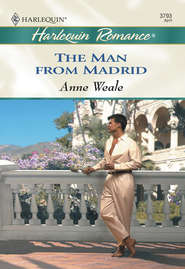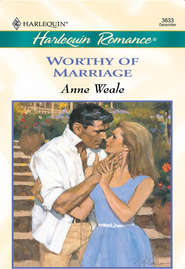По всем вопросам обращайтесь на: info@litportal.ru
(©) 2003-2024.
✖
A Spanish Honeymoon
Автор
Год написания книги
2018
Настройки чтения
Размер шрифта
Высота строк
Поля
‘Very friendly…and so have the local people.’ But, as she had already learned in England, there was a world of difference between the life of a wife and that of a widow. The social world was set up for pairs, not singles.
The door to the terrace opened and Fiona joined them. She was wearing the briefest possible silver two-piece swimsuit. As Fielding rose, she said, ‘Is that coffee? Can I have some?’ Only as an afterthought did she toss a ‘hello’ at Liz.
For something to say, Liz asked, ‘Did you enjoy your night on the town?’
‘It was OK.’
Fiona’s indolent shrug made her breasts do a jelly-like wobble in their silver cups. Probably most men would find her nudity enormously sexy, Liz thought. But would a discriminating man? Wouldn’t he think she was overplaying her seductiveness. Still, presumably sex, and lots of it, was the only reason she was here. She didn’t give the impression of being a great conversationalist. She was not even good at the small talk that strangers tossed back and forth in situations like this.
Liz drained her cup. ‘I’d better be off. I have a lot to do today.’
‘Hang on a minute.’ Fielding handed Fiona her coffee, then felt in his back packet and produced a billfold. ‘You’d better have some money on account…both to pay Alicia and for yourself.’
‘That really isn’t necessary. We can settle up next time you’re here.’
‘Certainly it’s necessary. I might get my head blown off by a terrorist and then where would you be?’ He handed her some twenty mil bills. ‘Tomorrow morning I’ll call at the bank and arrange for the payments into your account to be altered. You also need the extra house keys I had cut. They’re in a drawer in the hall.’
Following him from the kitchen, Liz said, ‘Goodbye, Fiona.’
Fiona did say, ‘Bye,’ but she didn’t bother to mask her indifference with a smile.
She must be fantastic in bed for him to put up with her abysmal manners, thought Liz, as she marched down the street, the money in her pocket, the keys to La Higuera in her hand.
When Cam returned to the kitchen, Fiona said, ‘She ought to get that nose bobbed.’
‘What’s wrong with her nose?’
‘It’s too big.’
‘So is mine,’ he said, rubbing the prominent bridge inherited from his great-grandfather, Captain ‘Hawk’ Fielding. His features had been similar to those of the Afghan tribesmen against whom he had played the Great Game on the North West Frontier, eventually dying a hero’s death in Kabul in the early years of Queen Victoria’s reign. Cam had often thought it was probably a gene from his adventurous forebear that had dictated his own choice of career.
‘That’s different,’ said Fiona. ‘On a man a big nose is OK. On a woman it’s not.’
‘I only noticed her eyes. They’re the colour of speedwells.’ Realising that Fiona might never have seen a speedwell, he added, ‘They’re small wild flowers…the bluest of blues.’
‘She doesn’t like you,’ said Fiona. ‘Or me. She was looking down her big nose at both of us. But it didn’t stop her taking your money.’
‘Why do you think she doesn’t like us?’ Cam could guess why, but he doubted if Fiona could.
‘I expect she envies you,’ said Fiona. ‘You’re famous and rich and successful, and she’s a nobody living in a grotty little house with no money. I shouldn’t think she’ll ever get another husband.’
‘You’re a luscious piece, but you don’t have a kind heart, do you, Fifi?’ he said dryly. ‘My reading of Mrs Harris is that she likes her little house, she doesn’t want to shop till she drops, and she’s still in mourning.’
Fiona didn’t like it when he called her Fifi. There were several things about him she didn’t like. He could be sarcastic, and sometimes she had no idea what he was talking about. But she enjoyed being envied by other women who would like to be his girlfriend, and he didn’t expect her to do all the work in bed, like some of the men she had known. In fact going to bed with him was a treat. She was in the mood for it now.
She gave him her most alluring smile. ‘I’m going to have a shower. Care to join me?’
In the night, without waking Fiona, Cam got up and went downstairs for some water. In his twenties and early thirties he had got through a lot of alcohol, but nowadays he drank less and less, knowing what happened to journalists who went on hitting the booze into their forties.
He was fit, and he wanted to keep it that way. He had drunk more this week, with Fiona, than he had for a long time. And he knew why. Because she bored him. When they weren’t actually in the sack, he found her a dull companion. It had been a mistake to bring her. This wasn’t her kind of place. She liked shopping and smart restaurants and places to dance. It had been selfish of him to deprive her of the things she enjoyed. She was a playgirl, but he was no longer a playboy. It was time to recognise that fact, to restructure his life accordingly.
After drinking one glass of spring water, he carried another upstairs. The bedroom was full of moonlight. It illumined Fiona’s unconscious face and the voluptuous curves outlined by the rumpled sheet.
Cam went to the window and looked out. Beyond the top of his garden wall was a row of Roman-tiled roofs, many tiles out of alignment, others speckled with lichen. Several of the houses were empty or used only for storage. There was only one flat roof, a conversion done by Beatrice Maybury.
Thinking about her successor, the buttoned-up Mrs Harris, he felt he had made a good move in appointing her to sort out his domestic problems. She seemed the conscientious type who would earn every peseta of the extra money he was paying her. She was certainly doing a much better job with the garden than Beatrice had.
At the same time he thought she was crazy to bury herself in a place like Valdecarrasca. Obviously, as he had said to Fiona, Liz Harris was still in mourning for her damned fool of a husband who had thrown away his life, and ruined hers, in a gallant act of madness. If his attempt had succeeded, he would have been a hero. Instead of which he was dead and she was condemned to a lonely future. He hadn’t asked, but he felt sure there were no children. If there were, she wouldn’t be here.
That she had accepted his offer, while privately disapproving of him, suggested that her work as a designer wasn’t bringing in enough money. Not that she had shown her disapproval, but his job had made him an expert at picking up vibes. Like most ‘good’ women, she had a strict moral code that put free agents like himself and Fiona beyond the pale. Good women wanted everyone to live the way they did, the men in solid nine-to-five jobs like accountancy and the law.
But he had chosen a career that demanded he pack his bags at short notice and go to wherever the headlines were being made, usually somewhere bloody uncomfortable, from which there was always a chance he might not return. The casualty rate was high among war reporters and photographers. It wasn’t a life to share with a wife and children. Some of his colleagues had tried, but usually it ended in divorce. It was wiser not to attempt it, or not until one retired. Which was what he was thinking of doing.
For almost twenty years he had run the gauntlet of violence in all the world’s worst trouble spots and got through with only a graze from a bullet on his arm. His luck might not hold out much longer. Too many colleagues had died, or been badly injured, or resorted to dangerous forms of Dutch courage. It was time to call it a day and become a desk-bound presenter or, failing that, find some other way of earning his living.
He had a hunch the Internet held the key to his future and, if that hunch proved correct, he could live where he pleased, perhaps here in this peaceful village, so remote from the war zones where he had spent recent years that it might be on another planet.
Early one morning, a week after the persianas came down at La Higuera, Liz opened the Inbox on her e-mail program to find a message from Cameron Fielding. In the subject line, he had typed ‘Congratulations on your website’.
Although the e-mail address she had written down for him was what was known as a dot com address, she was slightly surprised that he had bothered to check that the last part led to a website. But then she remembered he was a journalist, and curiosity was their stock in trade.
She read the main part of the e-mail he had written.
Dear Mrs Harris (or may I call you Liz?)
I’ve been looking round your website. I’m impressed. Maybe you should switch from needlework designs to website design. I’m told there’s a big demand for good site designers. How about making a start by designing a site for me? If you’re willing to have a crack at it, I’ll be happy to pay you the going rate.
Think it over.
Regards, Cam.
Liz printed out his e-mail and put it in her bag to re-read later. Today was the day she drove down to the coast to attend the weekly meeting of the Peñon Computer Club at Calpe.
According to elderly people who had known Spain before the tourist invasion, when she was a little girl Calpe had been a sleepy fishing village. Now it was a large resort with many tall blocks of apartments, most of them holiday flats or the year-round homes of retired expatriates.
Liz didn’t like Calpe but acknowledged that lots of people did, and it took all sorts to make a world. She did enjoy the club meetings, although most of the other members were old enough to be her parents or even grandparents. But their shared enthusiasm for computers made the age difference unimportant. One or two of the old men were inclined to ogle her, and one was a furtive groper. But she could cope with that.
After the meeting, she and Deborah, a divorcee in her late forties who kept in touch with her children by e-mail, had lunch at a Chinese restaurant not far from the port. It was close to the Peñon de Ifach, a massive rock, a thousand feet high, that reared out of the sea and was a mecca for rock climbers from all over Europe.
‘Have you ever walked up the path that goes up the other side of the Peñon?’ she asked her friend.
Deborah shook her head. ‘I don’t have a good head for heights. Living on the higher floors of some of the apartment blocks would worry me!’
‘Me too,’ said Liz. ‘I should feel uneasy sitting out on some of those tiny balconies. But a penthouse apartment with a garden might be nice. The views must be wonderful.’
After lunch she drove back to Valdecarrasca where, having no garage, she had to leave her seven-year-old vehicle in the car park near the building that had once been a lavadero, a public laundry with a stream running through it. Since then the stream had run dry and today, so Beatrice had told her, the water came from deep bore holes near a village at the far end of the valley. Nowadays everyone had mains water and washing machines but, in a country with little rainfall, the ever-increasing demand for water could not be met indefinitely.
After changing out of her good clothes into everyday things, she settled down to reply to Cameron Fielding’s e-mail.











